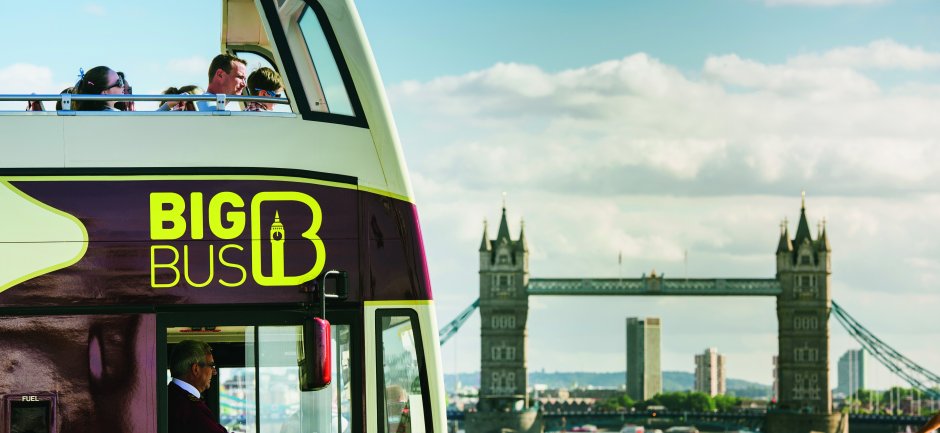Big Bus Tours Looks to a Green Future with Launch of Custom Built Zero Emission Electric Bus
BIG BUS TOURS today announced the introduction of its’ first new-build, fully electric open-top bus, following substantial investment in environmentally focused R&D.
Due to take to the roads shortly, the 100% electric bus will operate in Paris, as part of a global initiative to produce a cleaner, greener sightseeing transport experience for visitors, as they enjoy the city sights.
The new vehicle follows substantial research and development investment by Big Bus Tours into improving air quality in the cities they operate in. The company’s global research commenced 2 years ago with the launch of retro-fitted Dennis Condors in Washington DC, renovated to open top for sightseeing purposes. The buses were converted from diesel to pure electric drive, with power provided by lithium ion batteries. The US city now counts 3 electric vehicles within its fleet.
The first retrofitted electric bus proved a great success with thousands of Washington DC customers and staff alike, due to near silent operation, no vibrations associated with a normal diesel product, and absolutely no exhaust system or emissions into the environment. Due to its popularity, Big Bus Tours added two further 100% electric buses to the Washington DC fleet.
The new electric bus, set to launch in Paris, is the first purpose built electric vehicle by Big Bus Tours. Rather than retrofitting former diesel vehicles, this brand new electric bus was commissioned from their long term partner Ankai Automotive, following the success of the Washington DC roll out.
Testing will take place, once the bespoke bus is operating on the streets of Paris, with Big Bus Tours using the findings to produce its future purchasing strategy, considering the part electric vehicles will play in this, alongside other more traditional and other new energy alternatives.
Alex Payne CEO of Big Bus Tours said, “As an environmentally responsible company, and importantly one that receives no outside funding for these types of projects, the introduction of the electric bus is another milestone to celebrate in what has already been a successful year of positive improvements in our global bus fleet. As the world’s leading owner-operator of hop-on hop-off sightseeing tours, we want help to solve the air quality challenge facing big cities, and we are keen to lead the way in improving air quality in the sightseeing field. As a result, I’m thrilled to launch Paris’ first 100% electric Hop-on Hop-Off Sightseeing bus today, which has been a product of an extensive period of testing and learning with our electric retrofitted buses in the US. Our vision is to be the number one thing to do in every world-famous city, and the quality and specifications of vehicles is an important part of that goal. We are looking forward to the next generation of vehicle development, and giving our customers another reason to choose us as their preferred provider”
We are working closely with authorities in the cities to find solutions to continually improve our fleet and address the issue” he added.
Gerry Price, Executive Vice President of Operations at Big Bus Tours said of the Paris launch: “We’re excited to introduce an electric vehicle to our European fleet having launched the first electric vehicles in the United States in 2015. Over the course of the past two years, the introduction of the converted electric buses has brought about a significant reduction in emissions in Washington DC and our first new-build electric bus in Paris seeks to reduce emissions still further”.
“Electric vehicles are a significant investment for our business as they carry the heavy premium all new technologies do. This final phase of our testing plan has completed a period of significant R&D into creating a more environmentally-friendly service as well as a better experience for our customers, and will inform our future purchasing strategy globally.” He added, “While the conversions are expensive, some of this is recouped over the operational lifetime of the bus, as operational costs are only 10% of the cost of a diesel equivalent.”

